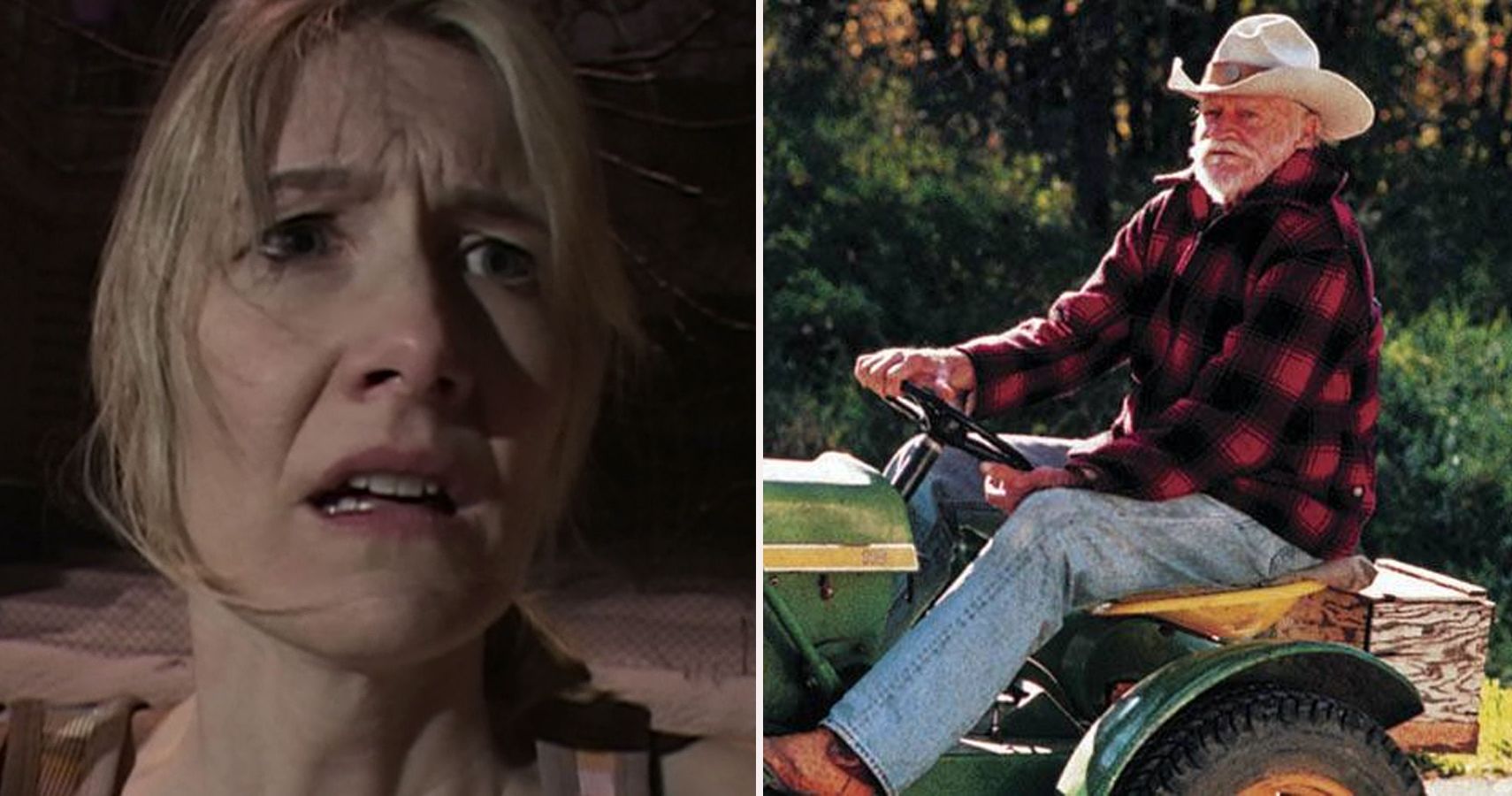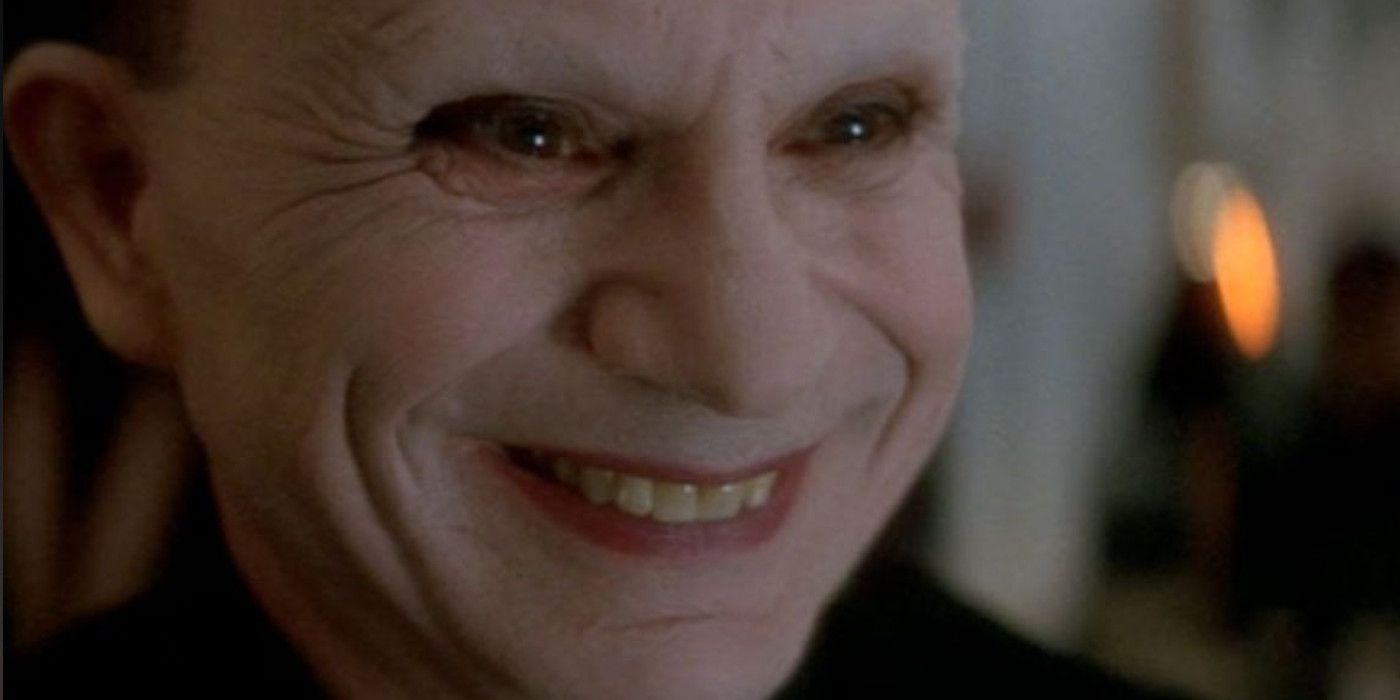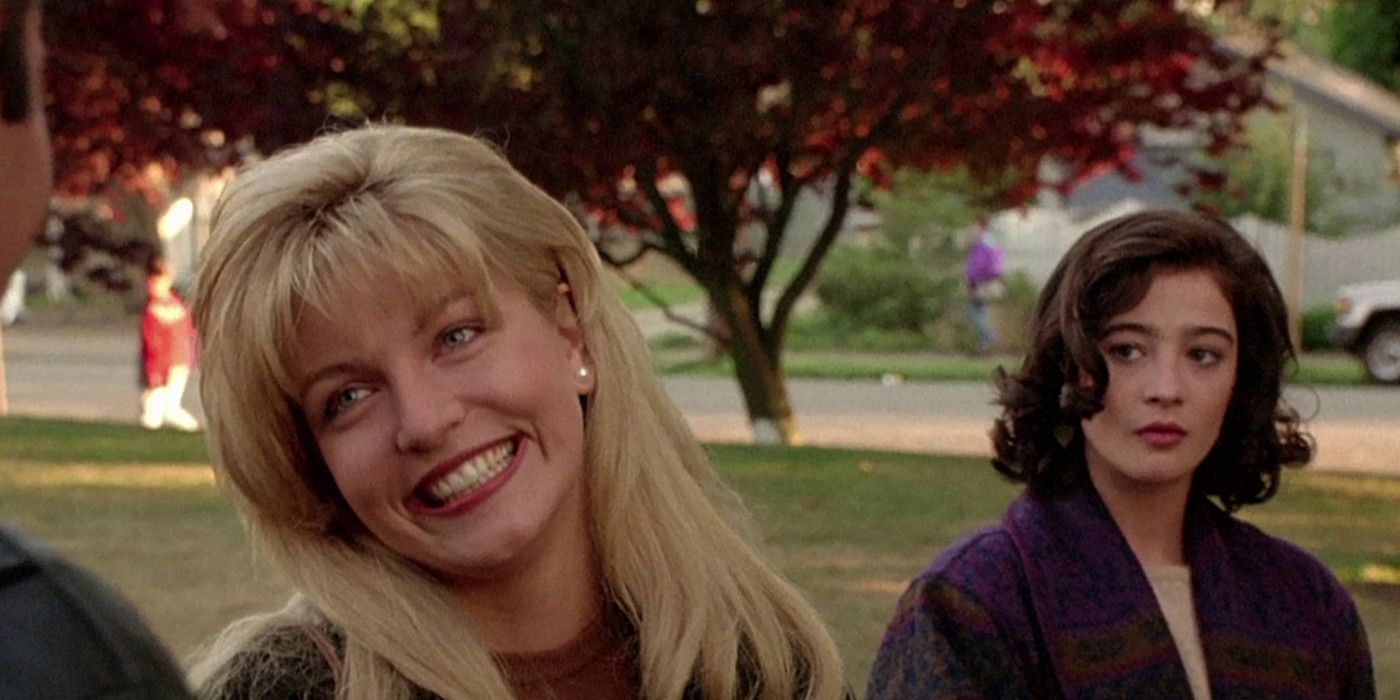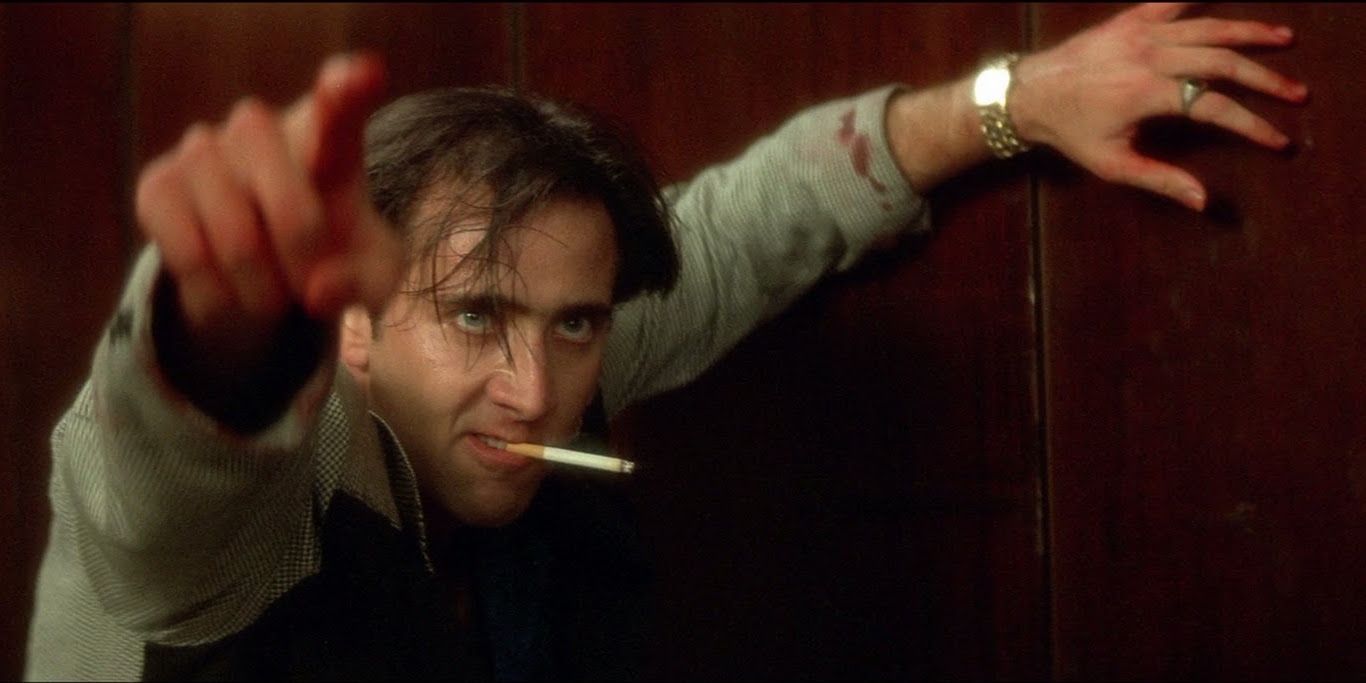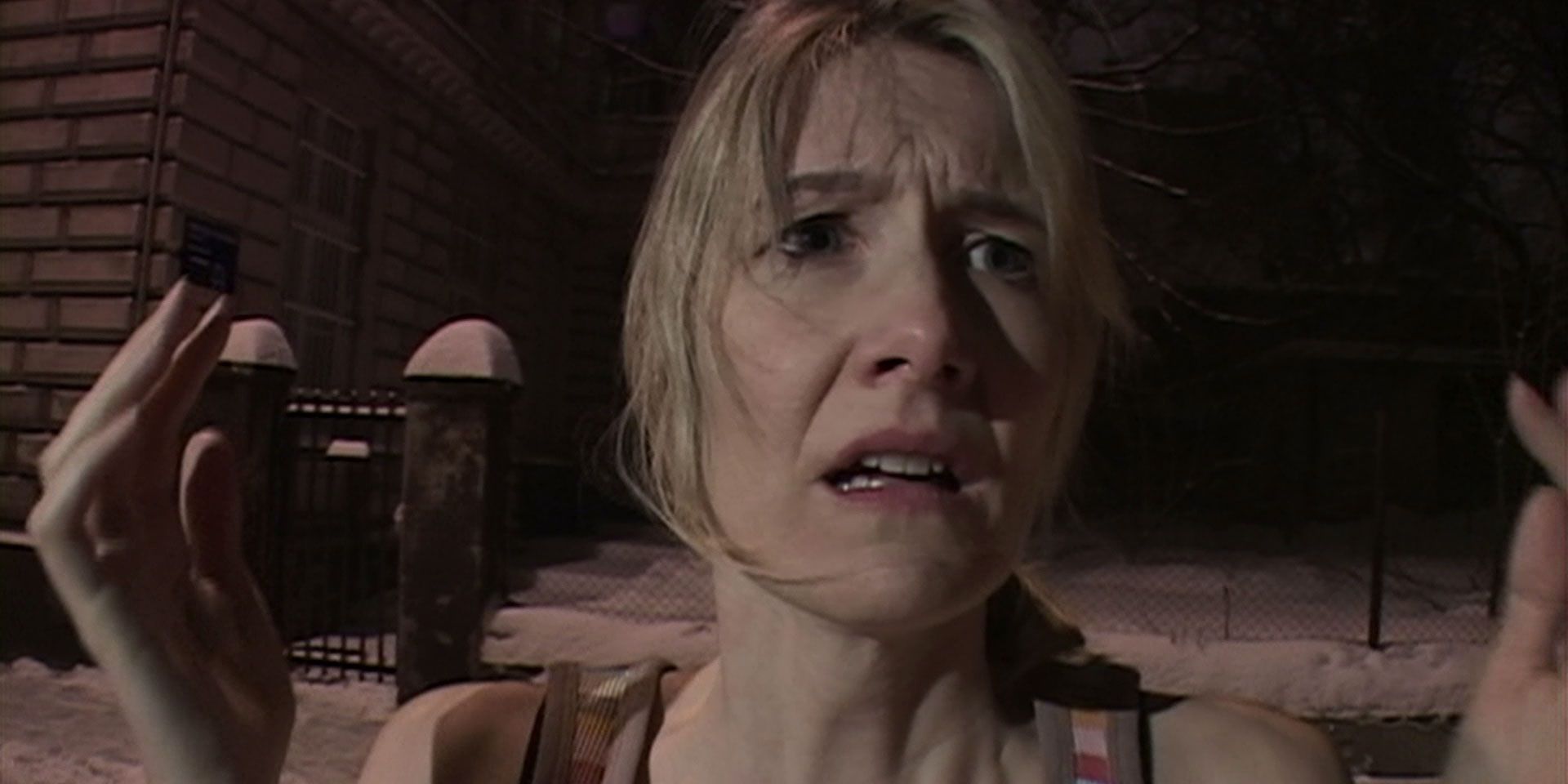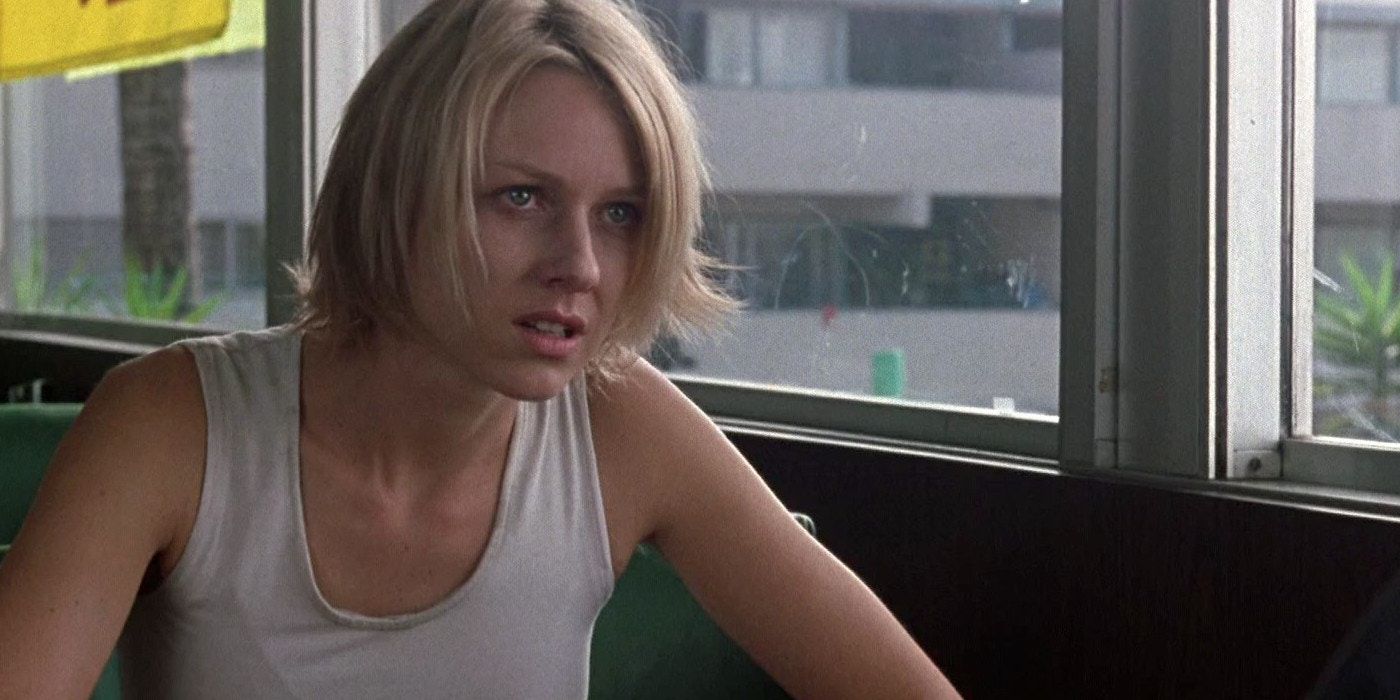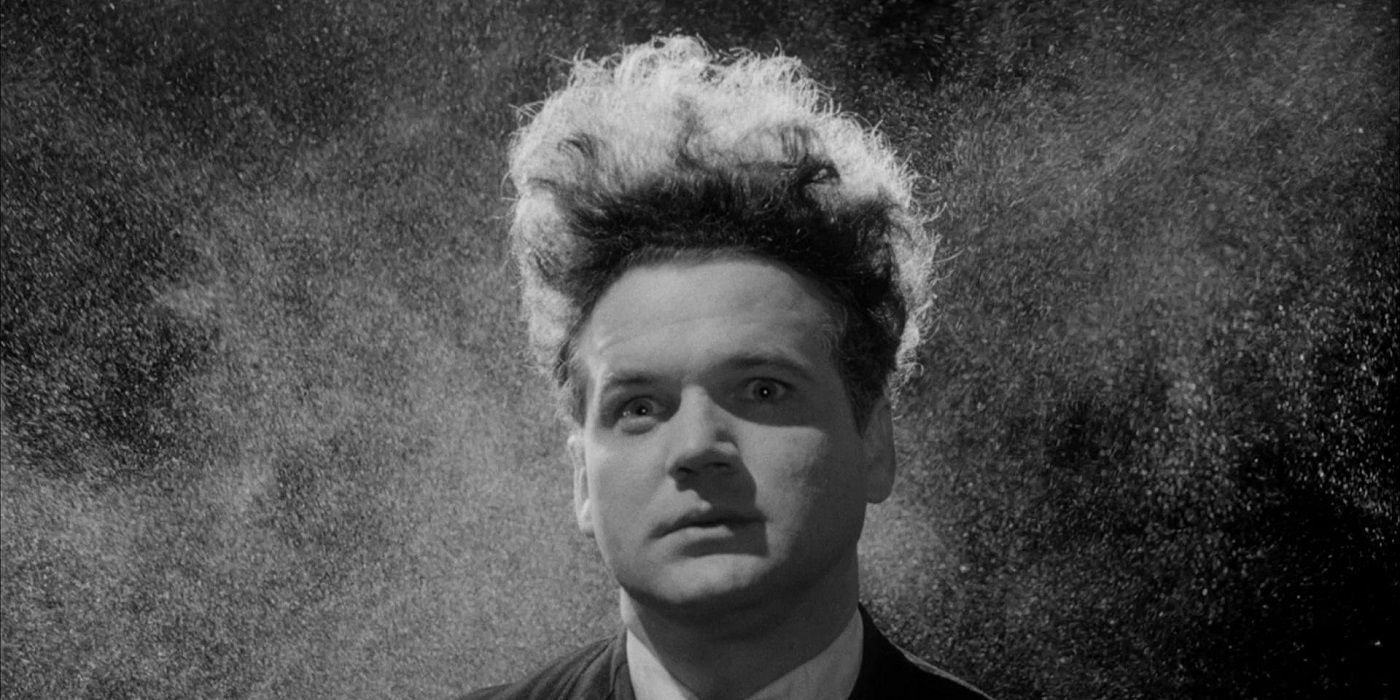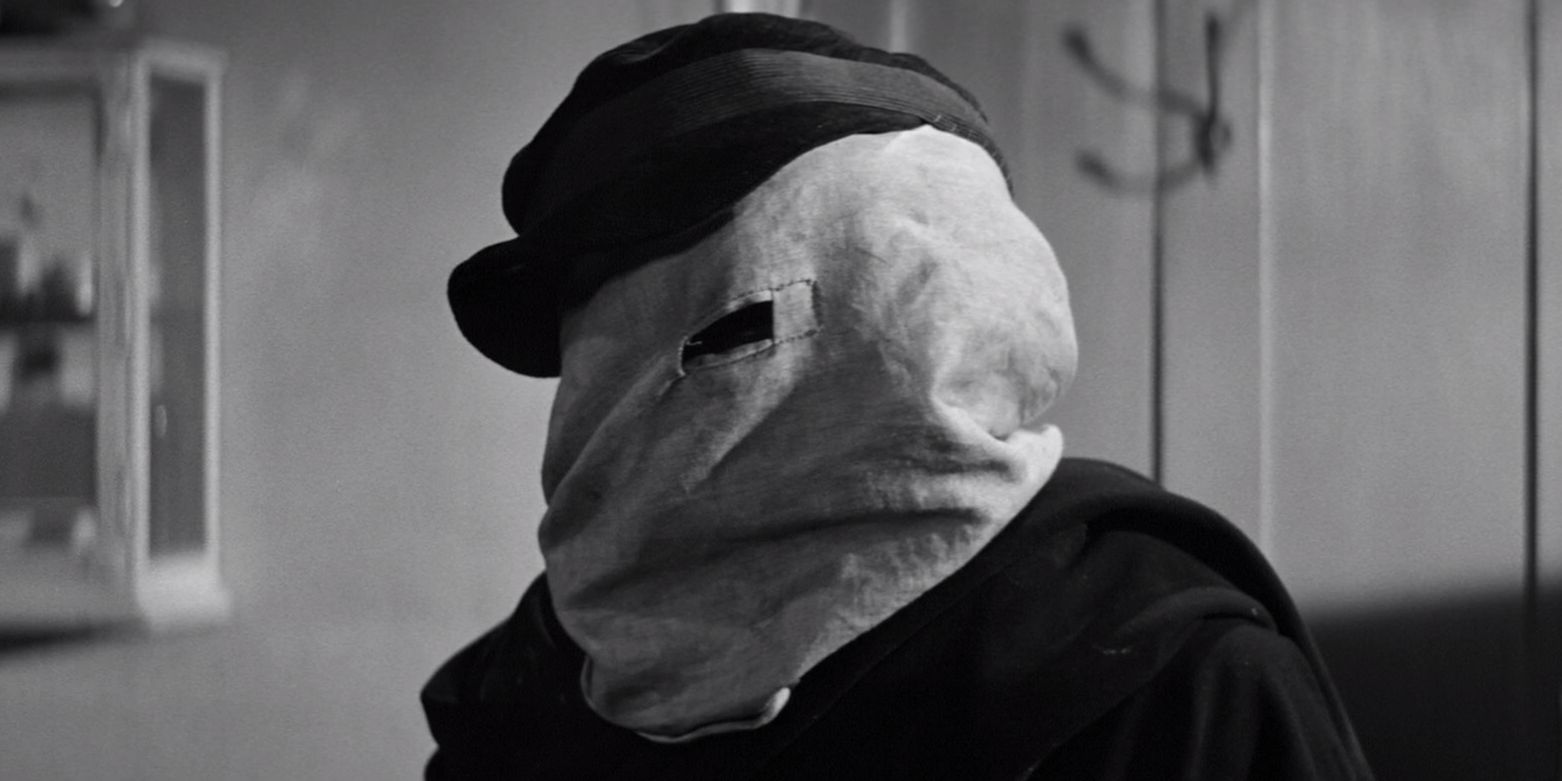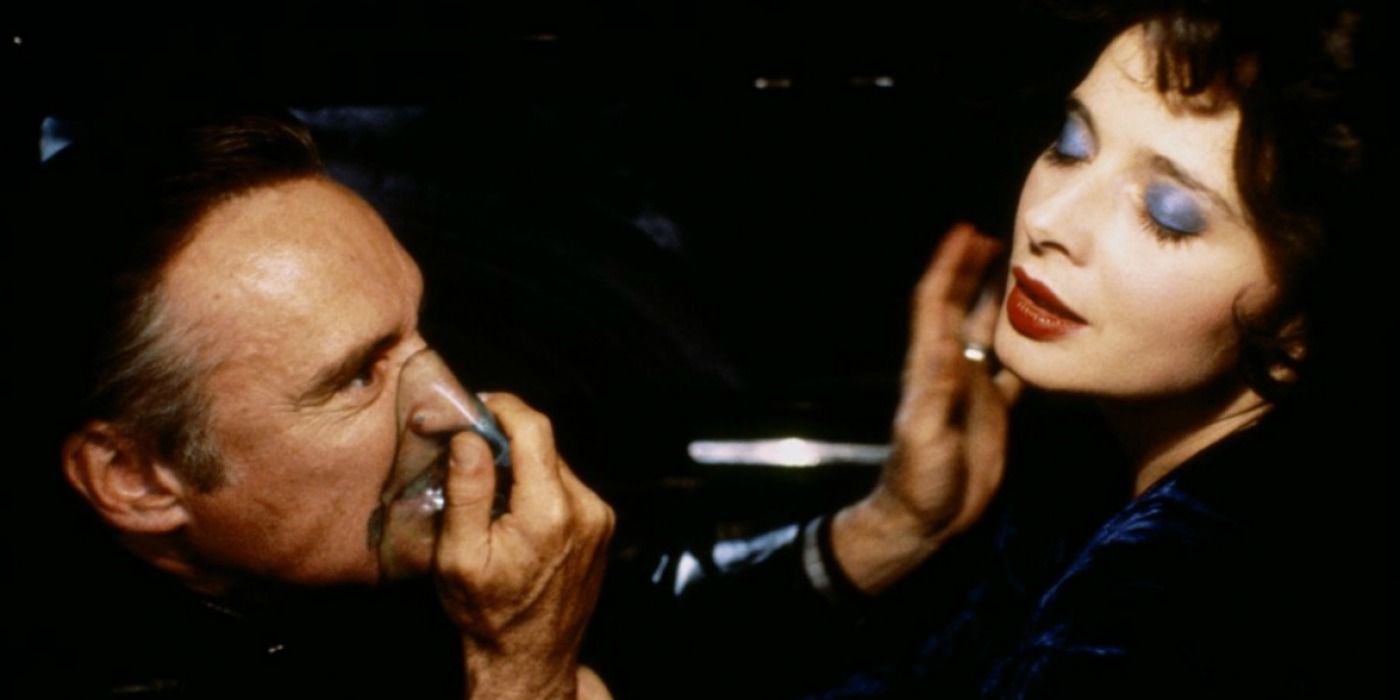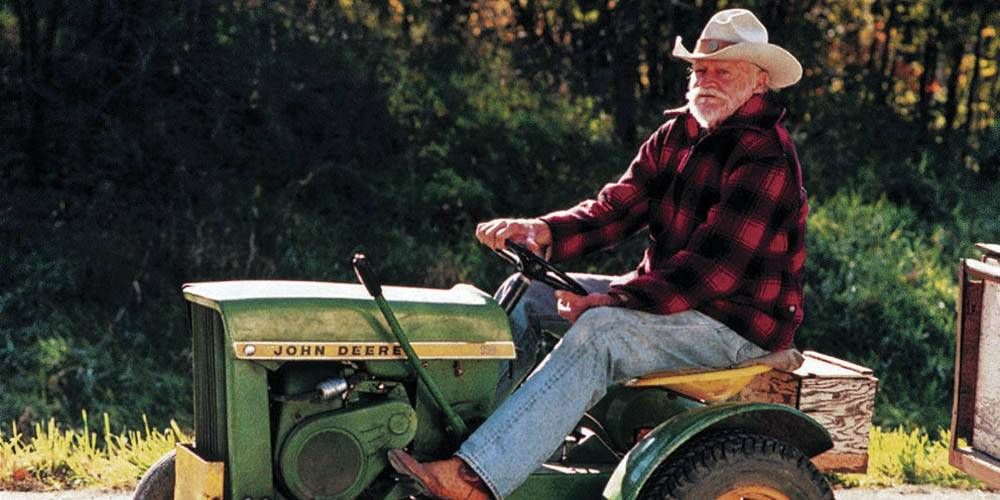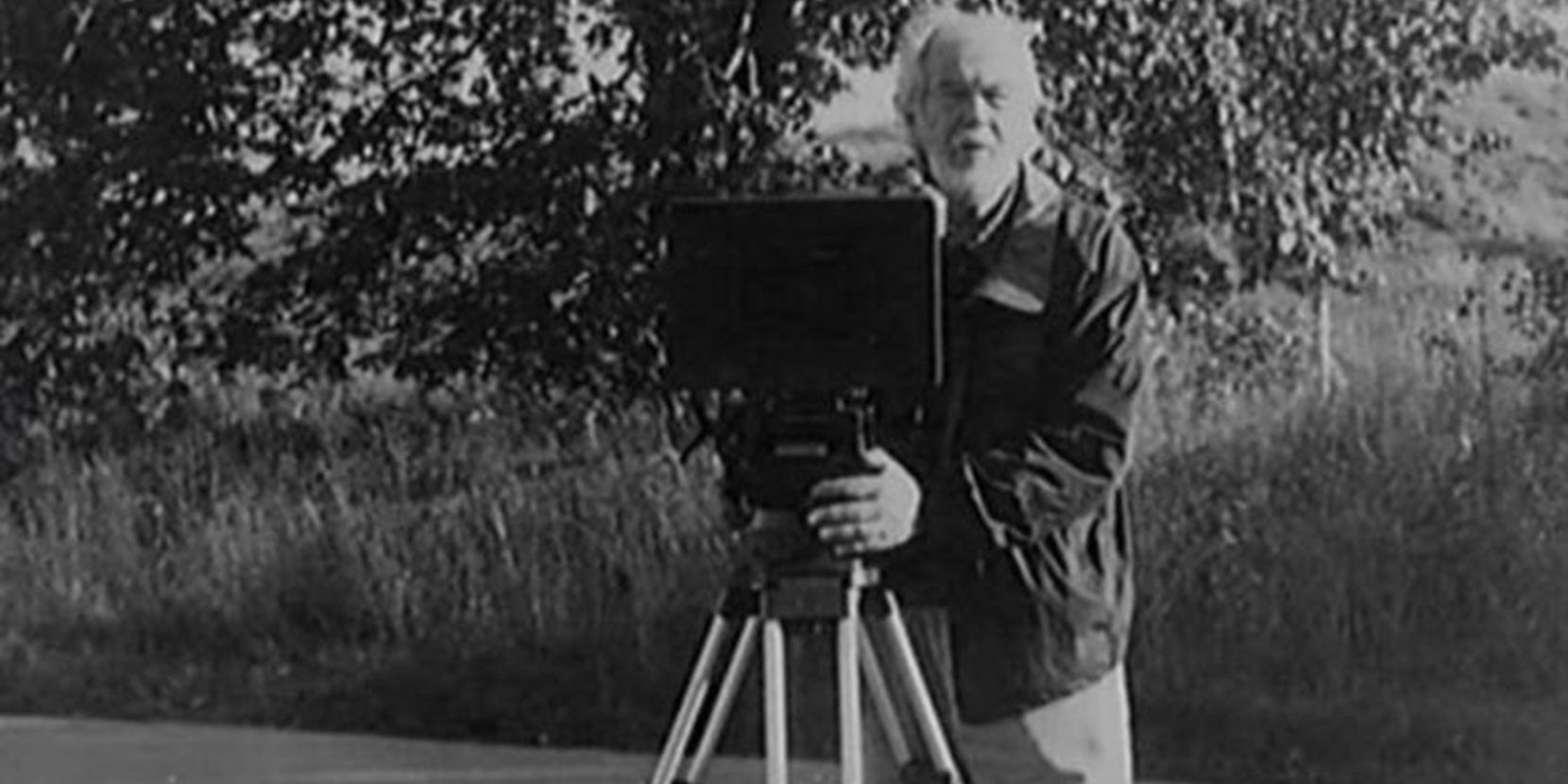A lot of mainstream viewers are put off by the films of David Lynch because they don’t play like traditional narratives. Rather, Lynch recontextualizes genre tropes, employs surreal symbolism that takes a lot of analysis to make sense, and edits non-sequitur sequences to play like dreams to unnerve his audience.
This has made him one of the most important directors of his time, even if he’s not one of the most famous. Over his storied career, Lynch has been nominated for three directing Oscars and won the Palme d’Or and a Golden Lion Award. So, here are David Lynch’s 10 Best Movies, According To Rotten Tomatoes.
Lost Highway (60%)
This paranoid neo-noir expertly draws you into its sinister plot. Bill Pullman stars as a man who is sent VHS tapes of him and his wife (Patricia Arquette) in their home. As he investigates the foul play, he suddenly finds himself convicted of murder, and before too long, he vanishes and gets replaced by a totally different guy – a young mechanic, played by Balthazar Getty. The movie received mixed reviews, including one particularly negative one from Roger Ebert, who argued that David Lynch used imagery and music to create a mood, but not to tell a story. Still, as far as cinematic moods go, it’s pretty enrapturing.
Twin Peaks: Fire Walk With Me (64%)
The second season of Twin Peaks, David Lynch’s curious blend of soap opera and supernatural mystery, ended with a mind-bending cliffhanger. And then, due to declining ratings, the network decided to cancel it, leaving audiences wondering what the heck was going to happen after Cooper’s doppelganger escaped from the Lodge possessed by the soul of Bob.
Before this would be properly resolved decades later with a third season on Showtime, Lynch directed a film adaptation, Fire Walk with Me, to tie up some loose ends. In true Prometheus fashion, he ended up asking more questions than he answered with the movie.
Wild at Heart (65%)
This road movie was adapted from Barry Gifford’s novel of the same name. It’s a really bonkers movie, combining gangland violence with modern allusions to The Wizard of Oz. The story revolves around Sailor Ripley (Nicolas Cage) and Lula Pace Fortune (Laura Dern), a young couple who go on the run after Lula’s mother hires some goons to kill Sailor. This movie could’ve easily been made as a gritty crime thriller, but David Lynch made it really stand out by also imbuing it with a dark sense of humor and an unpredictable penchant for breaking out into dance. It’s a movie like no other.
Inland Empire (72%)
Although it proved to be too experimental to capture the moviegoing public of 2006, Inland Empire is a fascinating movie. It stars Laura Dern as a Hollywood actress who becomes so wrapped up in her work that she begins to morph into one of her characters in her personal life. David Lynch shot the movie on low-res digital video with a Sony camcorder before completing the script. He decided to take the movie scene by scene, working on each one as it came. The result is a film that’s definitely disjointed, but ultimately very interesting. It’s a surrealist piece with strong themes.
Mulholland Drive (83%)
David Lynch originally developed Mulholland Drive – his dark, surreal, mind-boggling take on the Hollywood film industry – as a TV pilot. However, network executives looking for water-cooler shows and family sitcoms were instantly opposed to its unabashed weirdness, so Lynch reworked it as a movie. From a monster that makes its way out of a writer’s recurring nightmares and into his real-life to a little dancing man that is found inside a box to a cowboy who appears under the moonlight to life-coach a hotshot movie producer, Mulholland Drive is filled with imagery and symbolism that you’ll be racking your brain, trying to figure out, for months after you watch it.
Eraserhead (90%)
David Lynch’s feature film directorial debut Eraserhead pioneered the body horror genre with the story of Henry Spencer, a man struggling in an industrial landscape with a nagging girlfriend and a screaming newborn mutant baby. The American Film Institute helped Lynch to get the movie into production while he was studying there, and the result is a movie that both established him as a fresh voice in filmmaking and defined what would become of his career. Eraserhead was shot in black-and-white, which gives everything a slightly eerier feel (not that extra eeriness was particularly necessary; it’s already a pretty unsettling movie).
The Elephant Man (91%)
Many fans are surprised when they find out that The Elephant Man, the harrowing black-and-white retelling of the tragic life of Joseph Merrick (named “John Merrick” in the movie), was produced by Mel Brooks because he’s best known for making silly comedies like Spaceballs and Blazing Saddles. But there’s a social awareness to those movies. Brooks heard about Merrick’s story and decided it was so powerful that he would shepherd it into production and hand off creative control to a visionary director. The visionary director he selected was David Lynch, who brought out impeccable performances from John Hurt and Anthony Hopkins.
Blue Velvet (95%)
An astounding cinematic achievement, Blue Velvet is an expertly crafted film noir with a Lynchian layer of psychological horror draped over it. Kyle MacLachlan stars as a college student who returns to his hometown to see to his ailing father.
When he finds a severed ear in the middle of his otherwise tranquil suburban community, it draws him into a shocking criminal conspiracy that leads him to a romantic entanglement with a tortured lounge singer, played by Isabella Rossellini. He also crosses paths with Frank Booth, played by Dennis Hopper, one of the most sinister and unnerving villains ever put on film.
The Straight Story (96%)
It doesn’t sound like the surrealist, nightmarish visions of David Lynch and the wholesome, family-friendly cinematic products of Disney would be a good match for each other, but oddly enough, the two found the right story to work on together. The Straight Story is a road movie based on a real-life journey undertaken by World War II veteran Alvin Straight, who drove a lawnmower from Iowa to Wisconsin in order to visit his ill brother. It’s quirky enough for Lynch and harmlessly entertaining enough for Disney, and the result was a pretty brilliant movie, using the simplistic premise to emphasize character.
Lumière and Company (100%)
This curious anthology movie was the result of an experiment by a handful of filmmakers. Every director was required to make a short film that was less than 52 seconds in length, was edited in-camera on the Lumière brothers’ original Cinématographe camera, featured no synchronized sound, and was completed in no more than three takes. David Lynch was one of the directors from all over the world to helm these shorts, along with such greats as Spike Lee, John Boorman, Michael Haneke, and Arthur Penn. The experiment could’ve easily failed, but it resulted in a brilliant movie with a rare 100% Rotten Tomatoes score.

